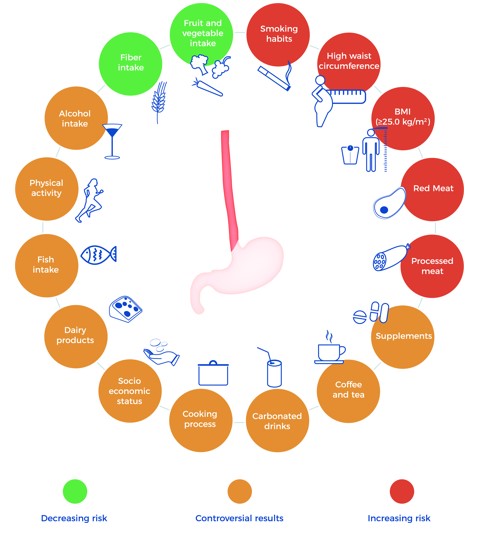One of the most notable changes in the Esophageal Cancer (EC) epidemiology is the rising incidence and prevalence of esophageal adenocarcinoma (EAC) in developed countries, likely due to lifestyle and/or environmental factors that may play an important role in EAC onset. The aim of this systematic review was to collect and summarize all the available evidence regarding lifestyle, diet and EAC risk. We searched the PubMed and Scopus databases in January 2021 for studies providing information about lifestyle, diet, WCRF/AICR recommendations and EAC risk. A total of 106 publications met the inclusion criteria. Body mass index (BMI) and waist circumference (WC) are associated with increased EAC risk. Physical activity does not appear to have a significant direct role in EAC risk. A diet rich in fruit, vegetables, and whole grains appeared to be more protective than a diet rich in animal fat, red meat, and processed meat. Alcohol does not seem to be related to EAC whereas smokers, particularly heavy smokers, have an increased risk of EAC. Primary prevention remains the best option to avert EAC. BMI and WC, along with low consumption of red and processed meat, high consumption of plant food, and the avoidance of smoking are pivotal for EAC prevention.

